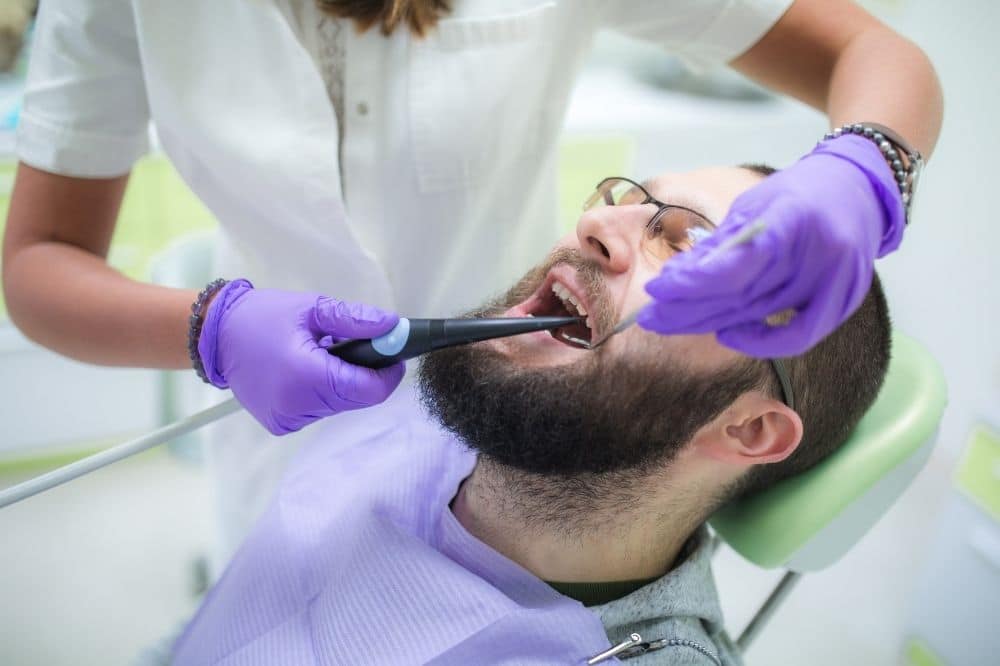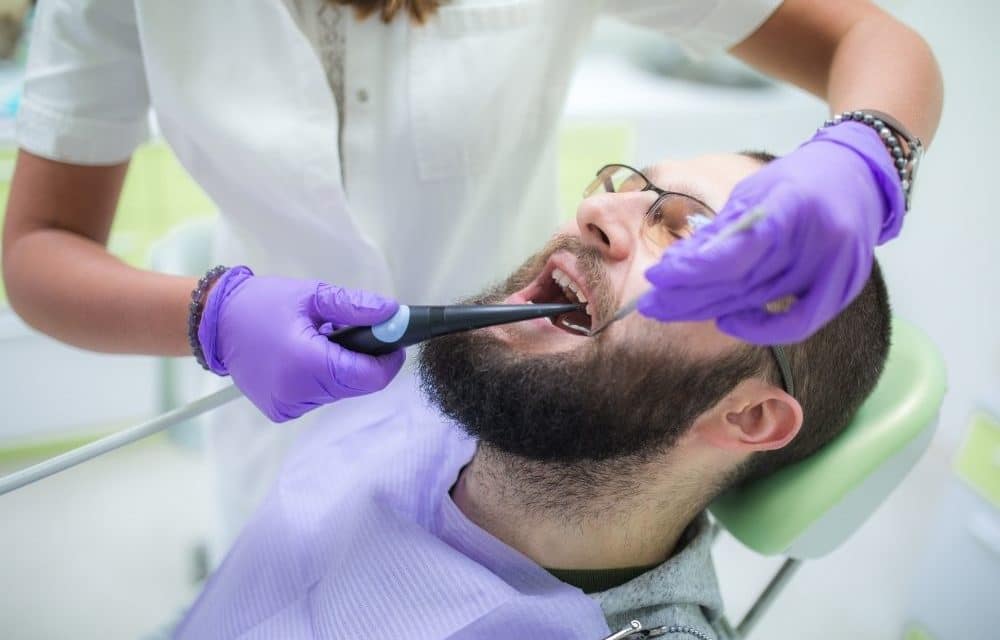
Brush, floss, and visit the dentist regularly. We hear this all the time, but it can be very easy to go a day or two without brushing our teeth, and it’s even easier to skip out on flossing.
Unfortunately, while our teeth seem strong to us, they are under constant attack by the bacteria that lives in our mouth.
When we don’t engage in proper oral care, we increase our risk for tooth decay as plaque and acid wear away at our enamel.
Use the following 8 methods for preventing oral cavities.
1. Brush and brush some more
Brushing your teeth at least twice a day is the easiest and most effective way to prevent cavities as it gets rid of bacteria in your mouth.
If you’re a midnight snack eater, do not put off brushing your teeth before bed. Bacteria will linger on your teeth overnight, creating acid that will damage your enamel. This is what leads to cavities.
If you want to go the extra mile, brush lightly after every meal. It is recommended to use a fluoride-containing toothpaste, as this will make your teeth more resistant to decay.
2. Floss once a day
While flossing can be pesky, it is an important component of keeping your teeth healthy. When we eat, food debris can get stuck between our teeth and if not flossed out, will sit there and encourage bacteria to chomp on it.
This leads to the production of acid which wears down enamel. If you hate flossing, pair it with another task like watching television.
Ideally, floss after every meal but at a minimum of once a day.
3. Add mouthwash or antibacterial rinses to the routine
Use an antiseptic or fluoride-containing mouthwash after brushing your teeth to help kill any leftover bacteria. Doing this will cut down on how much plaque is produced, which is important as plaque is what keeps acids in contact with your teeth.
4. Eat tooth-healthy foods
Incorporate tooth-healthy foods into your diet to replace sugary foods like chips, cookies, and pretzel snacks. Aim to consume cheese, fresh fruits and vegetables, and beverages that are unsweetened like coffee and tea.
When chewing gum, purchase the sugar-free variety. These foods will increase saliva production without getting stuck in the grooves of your teeth.
5. Drink lots of water
While drinking water provides a whole host of benefits, for your teeth it is critical for saliva production and washing away food debris. It also makes the perfect rinse when consuming foods that contain high acid levels.
Whenever possible, drink tap water as it will contain fluoride.
If you do not have access to tap water, make sure to use fluoride-containing toothpaste and mouthwash.
6. Go for routine oral exams and professional cleanings
By visiting your dentist for regular oral exams and professional cleanings, they can spot problems early on or prevent them completely.
7. Ask about dental sealants
If the grooves and nooks of your teeth collect a lot of food debris, you may be able to get a sealant that protects the tooth from plaque and acid buildup.
Dental sealants seal off the grooves, so food can no longer become trapped, preventing tooth decay with proper oral care.
8. Ask about fluoride treatments
If you are considered high risk for cavities, your dentist may recommend that you get fluoride treatments. You will be given a custom tray filled with prescription fluoride on a periodic basis to strengthen your teeth.
If you’d like to come for a dental visit and/or have any questions, feel free to get in touch today.





